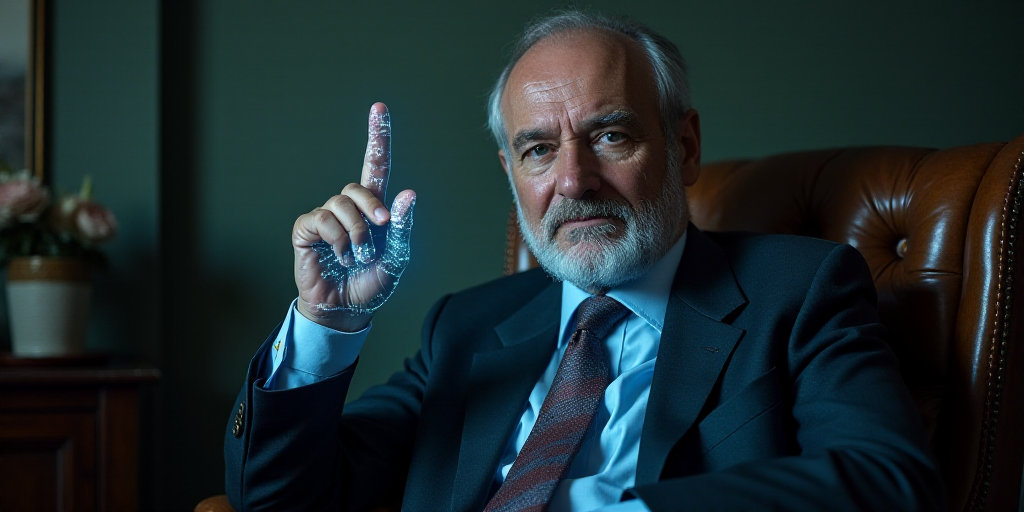Introduction to Pawel Kowal and His Expertise
Pawel Kowal, Polish Political Scientist
Pawel Kowal, a prominent political scientist from Poland and professor at the Institute of Political Studies of the Polish Academy of Sciences, has extensively researched Eastern Europe’s transition process. Recently visiting Mexico, Kowal shared his insights during an interview with El Economista.
Trump’s Treatment of Zelenski and Its Implications
—Does Trump show more empathy towards Russian President Vladimir Putin than Ukrainian President Volodymyr Zelenskyy?
Kowal explains that negotiations with Putin are more challenging for Trump. He finds it easier to exert pressure on Zelenskyy rather than Putin. Trump prioritizes Russia’s stability, a concern shared by previous US presidents like George H. W. Bush in the early 1990s.
Kowal’s Observations on the US-European Security Landscape
—What did you think of Trump’s treatment of Zelenskyy in the White House?
Upon observing the meeting, Kowal felt that we were witnessing the end of an era, particularly concerning US security provision to Europe. In Zbigniew Brzezinski’s latest book, “Strategic Vision: America and the Crisis of Global Power,” he predicts that by 2025, the US will relinquish its role as a security provider in the European region. European countries and NATO will need to increase military spending to rebuild the alliance amidst the transformative changes in US security policies.
NATO’s Objectives Under Trump
—Do NATO’s objectives run the risk under Trump’s presidency?
Kowal acknowledges that Trump, during his first term, inadvertently assisted NATO in achieving one of its goals: increased defense investment and readiness for confrontation. Poland, for instance, uses this message to encourage European partners to invest more in defense. Trump is correct in emphasizing that Europe must take more responsibility for regional security, moving away from the notion that the US should always be the global “soldier.”
Russian Propaganda and Crimea
—You mentioned a Polish taxi driver who believed Crimea to be Russian territory. How does this relate to broader issues?
Kowal explains that Crimea is a masterpiece of Russian propaganda. Historically, Ukraine has been a target for Moscow. After both World Wars, Crimea was recognized by the UN as part of Ukraine. Putin uses this topic in his speeches, attempting to legitimize Russia’s annexation of Crimea by pressuring democratic countries to acknowledge the territorial changes.
Russia’s Negotiation Tactics
—It appears that Putin has put the recognition of Crimea as Russian territory on the negotiation table with the US.
Kowal points out that both World Wars began when democratic nations forced border changes. In the past, Russia acknowledged Ukraine’s borders; now, it seeks to alter them through coercion of democratic countries. This mirrors Hitler’s tactics, posing a significant challenge for the international community.
Poland’s Security Concerns
—Poland, as the highest defense spender in the EU (4.8% of GDP), seems concerned about a Russian invasion.
Kowal clarifies that Russia is already waging a hybrid war against Poland, the EU, and all countries allied with Ukraine. Putin perceives Poland as an obstacle to his Kyiv ambitions.
Kowal’s Optimism Regarding Russia-Ukraine Relations
—Are you optimistic about a potential agreement between Russia and Ukraine?
Kowal expresses pessimism, as both nations have opposing objectives.
Key Questions and Answers
- Q: How does Trump’s approach to Zelenskyy reflect on the US-European security landscape?
A: Trump finds it easier to exert pressure on Zelenskyy than Putin, prioritizing Russia’s stability. - Q: What changes does Kowal predict for the US’s role in European security by 2025?
A: The US will likely relinquish its security provider role in Europe, prompting increased military spending by European countries and NATO. - Q: How has Trump’s presidency affected NATO’s objectives?
A: Trump inadvertently encouraged increased defense investment and readiness for confrontation among European partners. - Q: What is Kowal’s perspective on Russian propaganda regarding Crimea?
A: Kowal views it as a masterpiece of propaganda, aiming to legitimize Russia’s annexation through international pressure. - Q: How does Kowal perceive Russia’s negotiation tactics with democratic countries?
A: Kowal sees parallels between Putin’s tactics and those of Hitler, posing a significant challenge for the international community. - Q: Is Poland genuinely concerned about a Russian invasion?
A: Kowal explains that Poland perceives Russia as waging a hybrid war against it and its allies, with Putin viewing Poland as an obstacle to his Kyiv ambitions. - Q: What is Kowal’s outlook on Russia-Ukraine relations?
A: Kowal expresses pessimism due to opposing objectives between the two nations.






